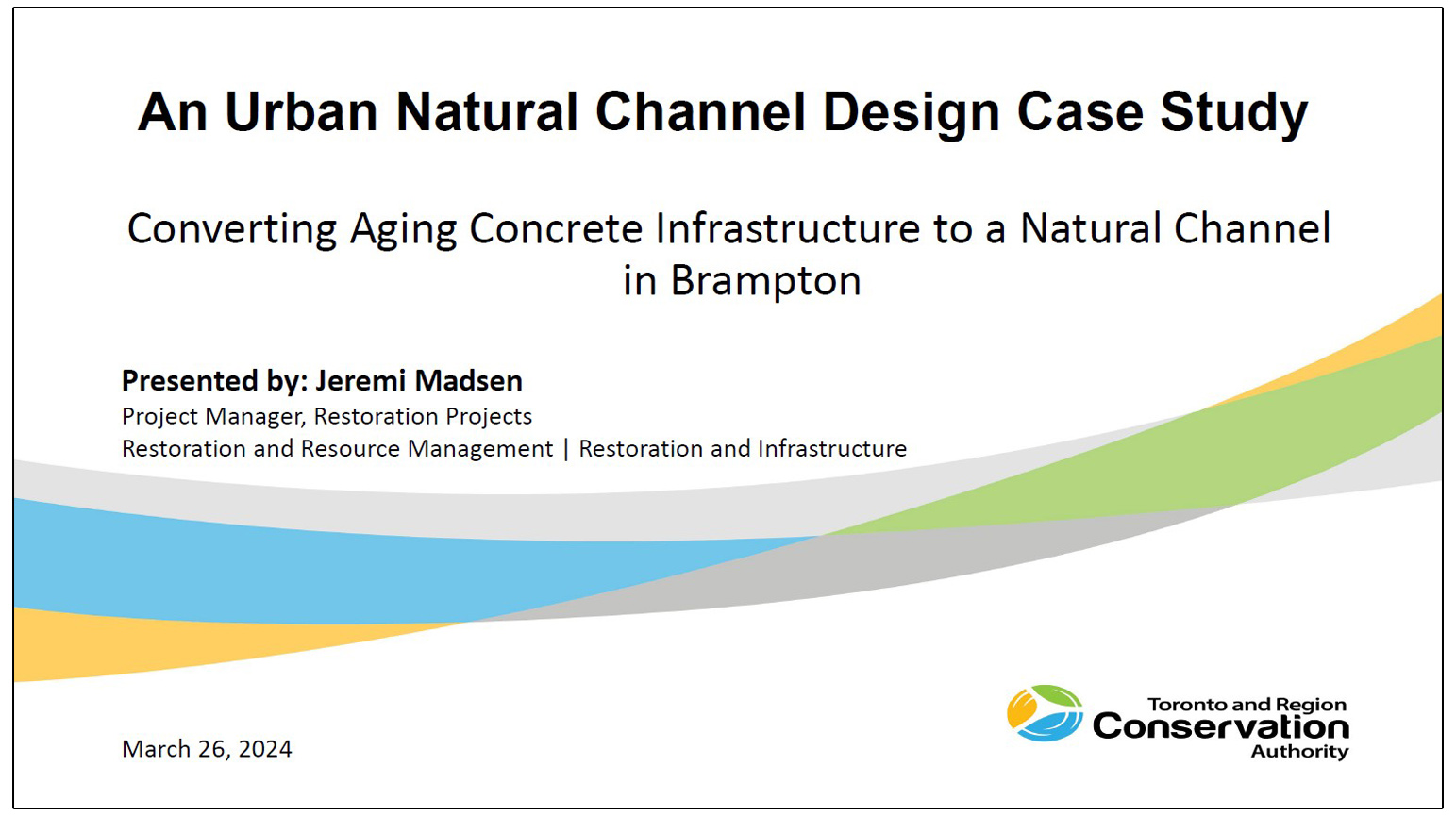TRACK 2, DAY 1
An Urban Natural Channel Design Case Study: Converting Aging Concrete Infrastructure to a Natural Channel in Brampton
ABSTRACT
Throughout the Region of Peel, modifications to watercourses through channelization and various forms of armouring was a common practice supporting development and the conveyance of stormflows away from properties.
Current knowledge has shown that channelization can increase downstream flooding and erosion. Moreover, channels that have been lined with concrete or other hard treatments have a limited ability to sustain ecological function or provide habitat for fish and wildlife.
Many of these altered channels are in varying states of disrepair, the most severe of which have already failed. These channels are now contributing to varying levels of erosion, which raises the risk of local flooding and the potential for damage to adjacent property and infrastructure.
Working in partnership with the City of Brampton, Toronto and Region Conservation Authority (TRCA) Identified five priority reaches where concrete lined channels could be restored using natural channel design principles. This first project was completed in 2022. Based on the success of that project, the second project (The Eastbourne Park Natural Channel Project) was initiated and is slated for completion in 2024.
The Easbourne Park Natural Channel Project project involves the removal of a failed concrete lined creek bed and constructing a natural meandering stream with bed and bank treatments to improve stream morphology and habitat.
Increased floodplain storage was achieved by restoring floodplain connectivity with associated wetlands at various points throughout the restoration site. Uncontrolled stormwater will be intercepted with floodplain wetlands to mitigate water quantity and quality impacts. Native trees and shrubs will be planted in the riparian areas and throughout the floodplain.
The project involved innovative design considerations as well on-site adaptation that was revealed during construction. The presentation will outline prioritizing the five reaches, project planning, design and construction considerations with discussion around successes and lessons learned.
ABOUT THE PRESENTER

Jeremi Madsen, Toronto and Region Conservation Authority (TRCA)
Jeremi Madsen is Project Manager, Restoration Projects with Toronto and Region Conservation Authority (TRCA). Having worked at the TRCA for over 11 years, Jeremi has a wealth of knowledge including planning, design and implementation of ecosystem restoration projects.
Projects Jeremi has been involved in include: stormwater management pond retrofits and maintenance, natural channel restoration, low impact development, and wetland restoration projects.
Jeremi started in the field as a labourer, then Site Supervisor. He then transitioned into the planning and design of projects six years ago, and is now leading large scale capital and special projects within the Restoration Projects team.

